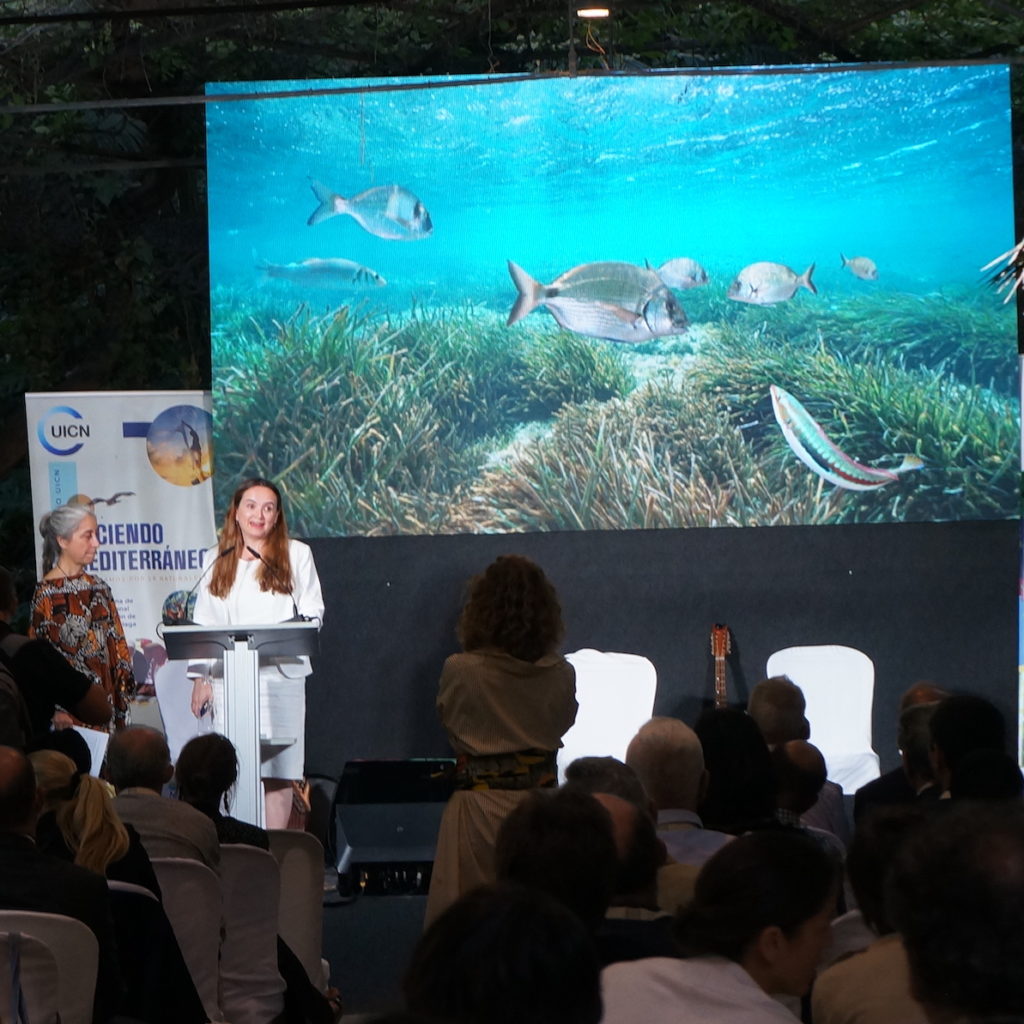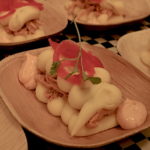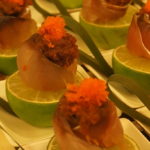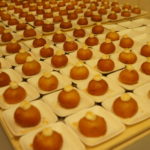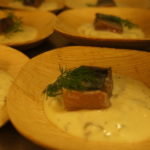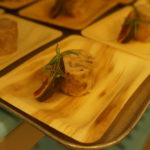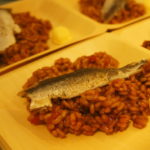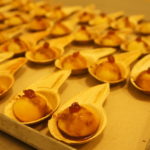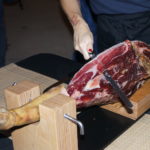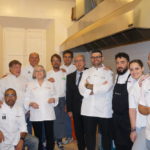Juan Villanueva
7th October 2022
From the Alboran Sea in Málaga, the tastiest thing is the Sardines skewer, without taking the credit off from other dishes within the concept of “pescaito frito”. At the IUCN-Med anniversary, the benefits of artisanal food and traditional techniques were taught. For many, climate change started when human altered the ecosystem in order to make food. Today, 40% of the land is used to grow food, and 75% of the Mediterranean fish is overexploited. The Impact is still immense
IUCN-Med anniversary was celebrated at the bucolic botanic garden of Málaga as a reference to the conservation. On this event, Gastroarte offered the taste of the Mediterranean, and they highlighted the identity of the area with local products. Hence, the product availability and the community create a cooking style, and through the style, you may know the people.
Fernando Rueda, Gastroarte president and historian, author of La cocina popular Malagueña (The traditional cooking in Malaga, in English) believes in the kitchen from nearby: “The traditional kitchen comes out of the local product. Nowadays, it is wanted cooking proper Malaga dishes with products from anywhere else, and the outcome obviously, can not be the same”. Certainly, driven by the price, like always.
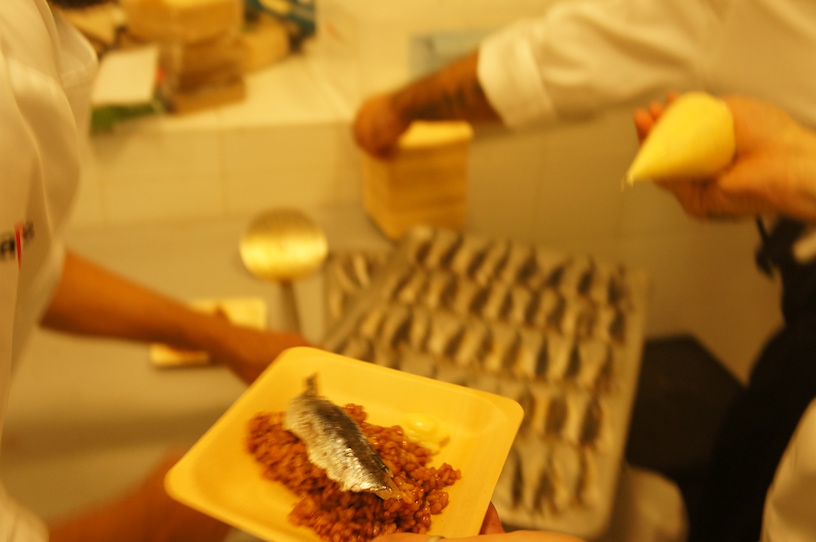
“Today is too hard to find fresh food produced nearby. You may easily find a hamburger restaurant with a 2 euros meal offer, but if you want a kilo of local tomatoes, you need to walk a mile and pay 4 euros.”
The Mediterranean menu at the IUCN-Med Aniversary
First-class chefs made a tasting with Mediterranean products at the IUCN-Med Aniversary in a marvellous botanic garden in Malaga. For instance, they served cuttlefish ceviche from La Caleta de Malaga by Sergio del Rio from Oleo or Jack Brioche in yellow by Juanjo Carmona from Cavala; it was a tasteful demonstration. Obviously, both chefs stress the close origin of the product and assure they double-check their providers personally. Juanjo Carmona told us: “We are fully committed to the environment. We use products from our neighbours and if possible ecologic and with traceability from top to bottom. We don´t buy any product”, and Sergio del Rio told us about his young goat roll: “This one is from Malaga 100%, and most importantly it´s a specie in the brink of extinction but is getting back thanks to its culinary value”.
However, some visitors missed vegan tapas as some of them couldn´t eat everything due to religion besides conservation or ethic, besides its environmental footprint.
With sardines, Jack, and anchovies on the plates, the true protagonist of the event was the fish from the overfished Mediterranean. The IUCN-Med states overfishing as one of the main causes of the decrease in fish catch in the last 30 years, “In the Mediterranean, 75% of the commercial fish was overexploited (2018). In addition, 18% of the fish captured was bycatch,» with all the cascade effects such as the fin shark, and the apex predator undersea.
The steady industrialization in food production
At the IUCN-Med aniversary, rueda confirmed what many of us know: We simply eat too much meat. As, it has shifted from an occasional on special days to being the main ingredient daily. “I´m a fan of the five colours diet. If You do that with fresh fruit and vegetables, you will have a healthy diet.” He believes everything artisanal and local looks after the environment, however problems start with industrialization.
Sunday Rock&Roll at a sin'vergüenza working weekend. pic.twitter.com/Mw9CpkO3UF
— Cultivo Desterrado (@RafaDesterrado) February 9, 2020
At 200 km from Málaga, in Cádiz, on the Atlántic coast, a “Shameless” farmer brings back a very peculiar style. He waters his navazo with salty water out of his tollo. Tollo is a well that provides underground fresh water mixed with ocean water.
Rafael Mongue leads the project The Exile Farming, and he tries to recover the same technics and traditions that his grandad used to work the land – with new technology, obviously. For him, the land has personality: “The intensive agriculture creates artificial conditions to grow a standard product. It doesn´t matter if you are in turkey, morocco or any other place because you have exactly the same environmental conditions.
Traditional farming is unique because of the place where it is. In addition, it adds value to the system, the skills and the knowledge of how to do it. “Agriculture has to be part of the ecosystem”. The farmer shall work in harmony to get the best of the land and help the conservation of the Mediterranean.

